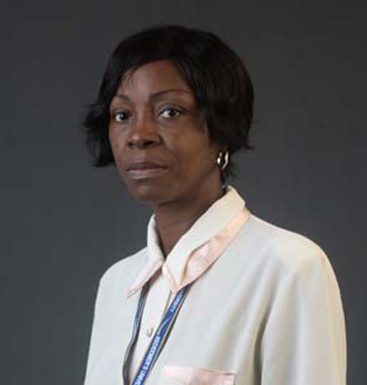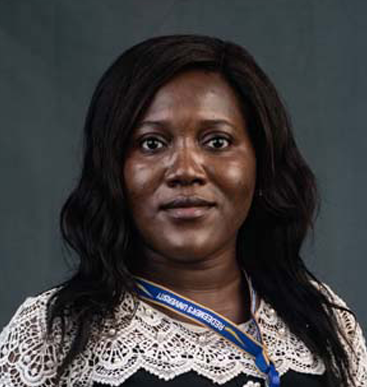Admission Requirements
5 ‘O’ Level/SSCE credits, NABTEB in one or two sittings; credit passes must include: English Language, Mathematics, Economics and relevant subjects.
Minimum UTME requirement is as set by JAMB in relevant subjects.
Direct Entry Requirement
- In addition to ‘O’ Level requirements, candidates must have passed at credit level in at least two social sciences or related subjects in the G.C.E. and ‘A’ Level (the grade point to be determined by the department from time to time).
- National Diploma in Business, Finance, Accounting or any other relevant discipline with at least upper credit from approved Polytechnics and Colleges of Technology OR Final certificate of relevant Professional Bodies
- University Diploma in Business Management, Financial Studies, Accounting and other University Diploma acceptable to the Department with a minimum of upper credit.
Career Prospects
Are you intrigued by the human mind and its workings? Does understanding, describing, predicting and modifying human behaviour sound interesting to you? Then come on in, our B.Sc. Psychology programme is just for you.
A study of this course will introduce students to the different methods psychologists use in investigating human behaviours, mental processes and emotions for the purpose of predicting outcomes and solving situations faced by individuals, organisations and the society. This makes psychology multi-faceted and a useful basis for a range of careers across sectors.
Our curriculum is aimed at giving students the knowledge and critical appreciation of psychological theory and systematic empirical research. It studies and researches biological basis in evolution, the nervous system and cognition; and social factors which affect the behaviour of individuals and groups.
Career Prospects
Career prospects in Psychology depend on the area of specialization and it is only after post graduation that specialized courses are offered in the highly advanced branches of Psychology. Clinical Psychology and Industrial Psychology are the most popular areas of specialization.
Clinical Psychology
Clinical Psychology involves working in conjunction with doctors, psychiatrics and other medical staff, assessing and treating patients and training staff in interpersonal relationships. Clinical Psychologists work in hospitals and clinics seeing patients including children and parents, adolescents, adults and elderly people or individuals with behavioural problems and psychological difficulties.
The assessment techniques include psychometric and psychological testing, interviewing and observation. Once a diagnosis is made, a suitable treatment, like behaviour therapy, group therapy and counseling, may be started
Following post graduate qualification(s) in psychology, one could specialize in psycho-diagnosis, psychotherapy or research. Psychotherapy provides an interesting opening if one would like to treat behavioural disorders and maladjustments.
Educational Psychology
Educational Psychology is based on school life. Here psychologists interface with teachers and parents in assessing and treating children with learning issues/challenges. Educational Psychologists work in schools, social service establishments, child guidance clinics and children’s departments of hospitals. Educational psychologists can offer help like counseling and behaviour management. They assist pupils to cope with physical and mental handicaps, behaviour problems, learning and communication difficulties and social problems arising from ill-treatment or neglect in the home. They advise parents and teachers in difficult situations and offer training if necessary.
Occupational Psychology
Occupational Psychology handles the relationship between people, work and employing organisations. It takes a multi-disciplinary approach with experts in training, personnel, ergonomics and a range of related activities.
Occupational psychologists may be involved in personnel selection and training, industrial relations, organisations and methods and work study, stress and its related problems like absenteeism, lack of job satisfaction, alcoholism or lack of effectiveness, retirement and unemployment.
They research into the quality of work experience. They may advise on new working practices, counsel employees with difficulties, devise improved methods of communication and train managers to get the best out of their staff.
Industrial/Organisational Psychology
Industrial/Organisational Psychology is another promising avenue with industries striving towards innovation in thought, quality in work and financial success. As a large number of industrial houses and public organisations are applying psychology to problems of training, supervision of personnel, etc, Industrial/Organizational Psychology has received a boost in recent years.
Research and Teaching
Research and teaching cover a wide range of fields including experimental psychology, developmental psychology, physiological psychology, comparative and animal psychology, social psychology, abnormal psychology, market research and social psychology, statistics and methodology. Many of the groups overlap both in the work done and the academic study involved.
Counseling Psychology
Counseling psychology deals with normal people with minor emotional problems, decision making problems, stress, etc. The role of the counseling psychologist is to facilitate decision making through a realistic orientation to oneself and the environment. A counseling psychologist works in different spheres of life such as schools and organisations.
A degree in Psychology provides graduates with strong foundations in pursuing careers as psychologists and also valuable analytical and critical thinking skills that are transferrable to many professional occupations and have been shown to increase employability.
Careers open to psychologists include, clinical psychologists, sports and exercise psychologists, forensic psychologists, educational psychologists and occupational psychologist.
Graduates would also be open to wide range of careers roles as Human Resource Managers, Psychotherapists, Public Relations Strategists, Advertising consultants and Counselors.
Staff Directory

Reader
Dr Mrs Akinbobola Olusola Iyabode
Research Area
Organisational Psychology
Contact Information
- akinbobolao@run.edu.ng
- 08023315058
- Research Gate
- Google Scholar

Lecturer I
Dr Mrs Akintola Aderonke Adebola
Research Area
Parenting, Child and Adolescent Psychology, Child Psychopathology & Emerging Adulthood
Contact Information

Lecturer II
Miss Bello Ibukunoluwa Busayo
Research Area
Psychology (Clinical)
Contact Information
- belloi1@run.edu.ng
- 08083372086
- Research Gate
- Google Scholar

Lecturer II
Dr Olusa Abayomi Olubanjo
Research Area
Job Creativity, Innovation and Entrepreneurship, Job Demands
Contact Information
- abayomiolu@run.edu.ng
- 07031520534
- Research Gate
- Google Scholar

Lecturer I
Mrs Mopa Egbunu Adenike
Research Area
Health Psychology, Cognitive Science
Contact Information
- adegbayiad@run.edu.ng
- 09036516779
- Research Gate
- Google Scholar
Psychological Services Unit
The Psychological Services Unit at the Redeemer’s University consists of a multi-disciplinary team of skilled and experienced psychologists and mental health advisors who understand how mental health issues can affect your studies, work, and life.
The unit provides free and confidential counselling, mental health advice, a 24-hour helpline, self-help resources, and workshops for student and staff of the Redeemer’s University.
The unit provides students with wellbeing and mental health support to help them focus on their studies.
Our therapists and psychological wellbeing practitioners offer:
- short-term individual therapy and counselling sessions
- group therapy and psycho-educative workshops.
These may be in-person, online or by telephone.
Depending on what is most appropriate for your needs, we will use low- and high-intensity Cognitive Behavioural Therapy or Psychodynamic Therapy.
Operating hours
With the exception of the summer vacation, when we are closed in the evenings, we are open:
- 9am to 5pm on Mondays to Fridays
Eligibility
Therapy and counselling is free and available to all the following:
- foundation, undergraduate and postgraduate (taught and research) students registered with the Redeemer’s University
- postgraduate students registered with the Centre for Gender Studies.
Our counselling service is accredited by the Nigerian Psychological Association.
| NAME | RANK | |
| 1 | Professor (Mrs) Akinbobola Olusola Iyabode | Professor of Psychology |
| 2 | Dr Akpunne Bede Chinonye | Clinical Psychologist |
| 3 | Dr Akintola Aderonke Adebola | Developmental Psychologist |
| 4 | Dr Mopa-Egbunu Adenike | Psychologist |
| 5 | Dr Olusa Abayomi Olubanjo | Psychologist |
| 6 | Dr Ogunsemi Joshua | Clinical Psychologist |
